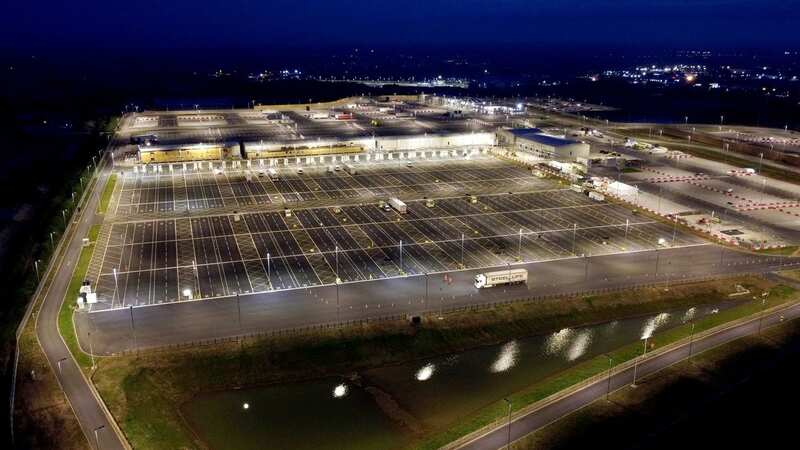Post-Brexit border food and drink rules could pose 'serious biosecurity risks'

New post-Brexit border rules, set to come into effect on Wednesday, have sparked fears of "serious biosecurity risks" and disruption to supply chains.
The Environment, Food and Rural Affairs Committee has voiced its concerns to Secretary of State Steve Barclay about the Government's preparations. Goods from Britain have faced similar controls from the EU since it left the bloc's single market at the start of 2021, but the UK has repeatedly delayed checks in the other direction.
Committee chairman Sir Robert Goodwill expressed concern over plans that would see funding for spot checks on animal products at Dover reduced by around 70%. The Conservative MP said: "We remain concerned about the location of the physical checks that will be undertaken for commercial loads."
Under the new system, health checks on foods arriving at Dover will be carried out at a facility in Sevington, Kent, about 22 miles inland. Sir Robert Goodwill, in a letter to the Defra Secretary, wrote : "Your Department informed us that Sevington will provide a modern and purpose-built site for goods and live animals that arrive through both the Port of Dover and Eurotunnel."
"Defra's justification appears to be that it is located to support the smooth flow of goods out of both points of entry without disrupting traffic flows out of the Port of Dover. However, the inland border facility at Sevington will require vehicles to travel 22 miles unsupervised across Kent, presenting potentially serious biosecurity risks, but also compromising compliance."
 Teachers, civil servants and train drivers walk out in biggest strike in decade
Teachers, civil servants and train drivers walk out in biggest strike in decade
He added: "We understand that drivers will be under no obligation to go to Sevington, if asked to do so. As such, we have real and reasonable concerns about the geographic dislocation of the inland border facility from the point of entry."
Dover Port Authority has voiced its anxieties over the scheme, along with possible slashes in funding. A government spokesperson said "We have strict border controls in place to protect food and animal health safety and these, along with our high biosecurity standards, remain unchanged."
The spokesperson added: "Following careful consideration of the options for border control posts in Kent, we announced our intention to consolidate physical controls at the inland border facility at Sevington. We are confident that Sevington will have the necessary measures in place to appropriately mitigate biosecurity risks that relate to this facility being located away from the point of entry."
They also noted that more changes are coming, with checks on medium-risk animal products from the EU starting by April 30 and new requirements for EU imports from October 31. Ireland's deputy premier Micheal Martin has said that while Ireland is "well prepared" for the changes, he reminded businesses, especially in agri-food, to make sure they're ready.
* An AI tool was used to add an extra layer to the editing process for this story. You can report any errors to webhomepage@mirror.co.uk
Read more similar news:
Comments:
comments powered by Disqus

































